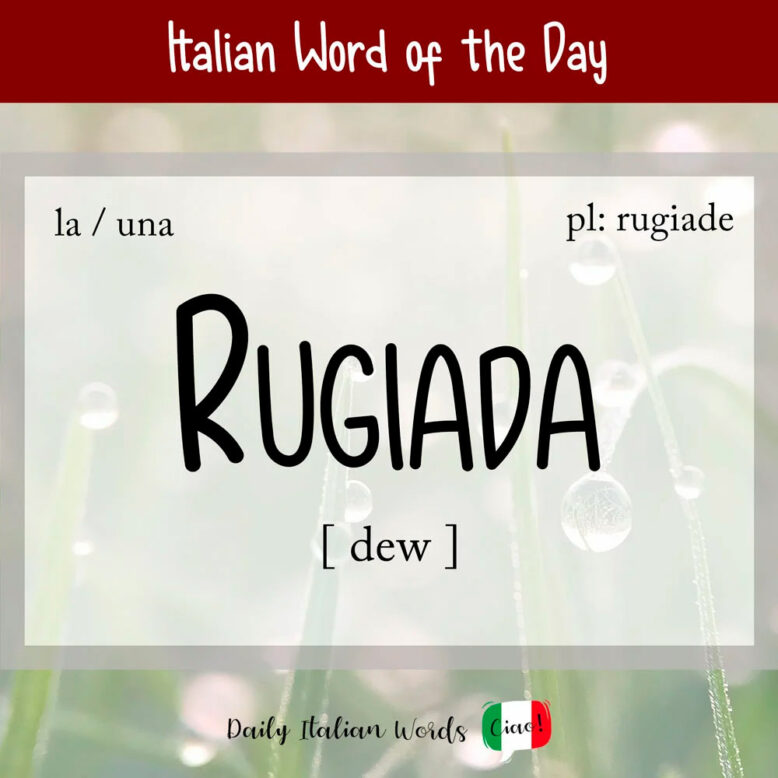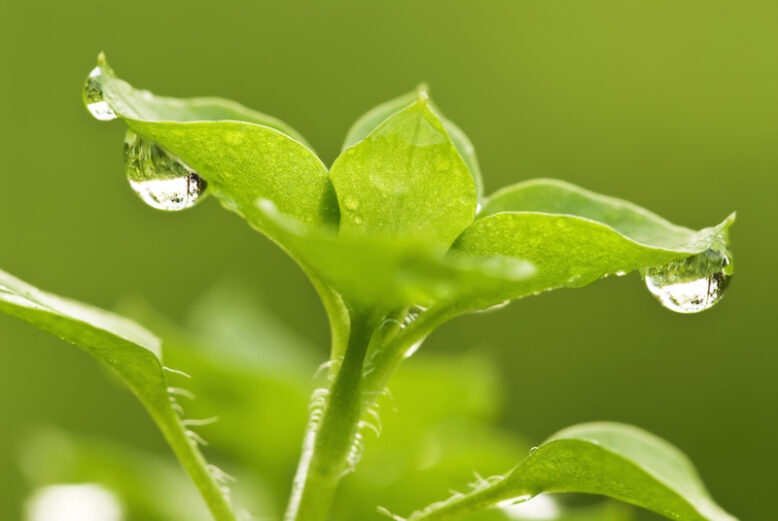An Italian word that sounds as lovely as the thing it indicates is rugiada, which means dew. It is thought to have entered the language from the Latin ros via the Gallo-Italic rosada.

Rugiada is a feminine noun whose plural form is rugiade. (Note, however, that the plural form is used far less than the singular.) It takes the following definite and indefinite articles:
- la rugiada = the dew
- le rugiade = the dew
- una rugiada = a dew
- (delle) rugiade = (some) dew
Le goccioline di rugiada brillavano sull’erba.
The dew drops shimmered on the grass.
Some important terms associated with the term rugiada include:
- goccia / gocciolina di rugiada = dewdrop
- temperatura di rugiada = dew point
- rugiadoso = dewy

A possible synonym for rugiada is guazza, with the difference being that the latter forms in the presence of dense fog that cools on surfaces overnight, creating larger pools of water than ordinary moisture in the air.
Brina (frost) happens when dewdrops become frozen due to the low temperature at night.
In ancient literary Italian, it also acquired the figurative meaning of comfort or relief, as in the following line from 14th century author Boccaccio’s Decameron:
Senza dubbio alcuna rugiada cadere sopra il mio fuoco comincerò a sentire.
I shall, without a doubt, feel some dewdrops (of relief) fall upon my fire.
Heather Broster is a graduate with honours in linguistics from the University of Western Ontario. She is an aspiring polyglot, proficient in English and Italian, as well as Japanese, Welsh, and French to varying degrees of fluency. Originally from Toronto, Heather has resided in various countries, notably Italy for a period of six years. Her primary focus lies in the fields of language acquisition, education, and bilingual instruction.


